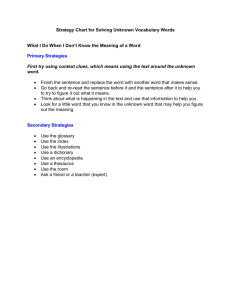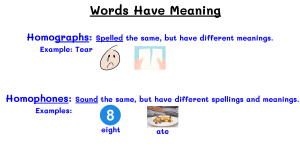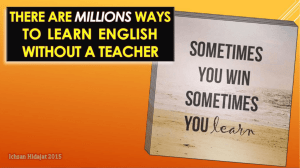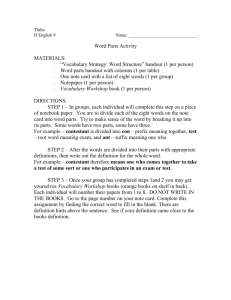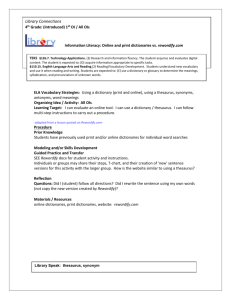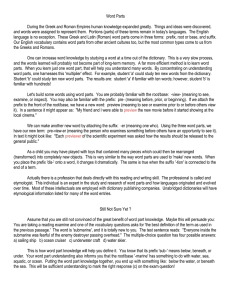CHAPTER 4 Test (McWhorter).doc
advertisement
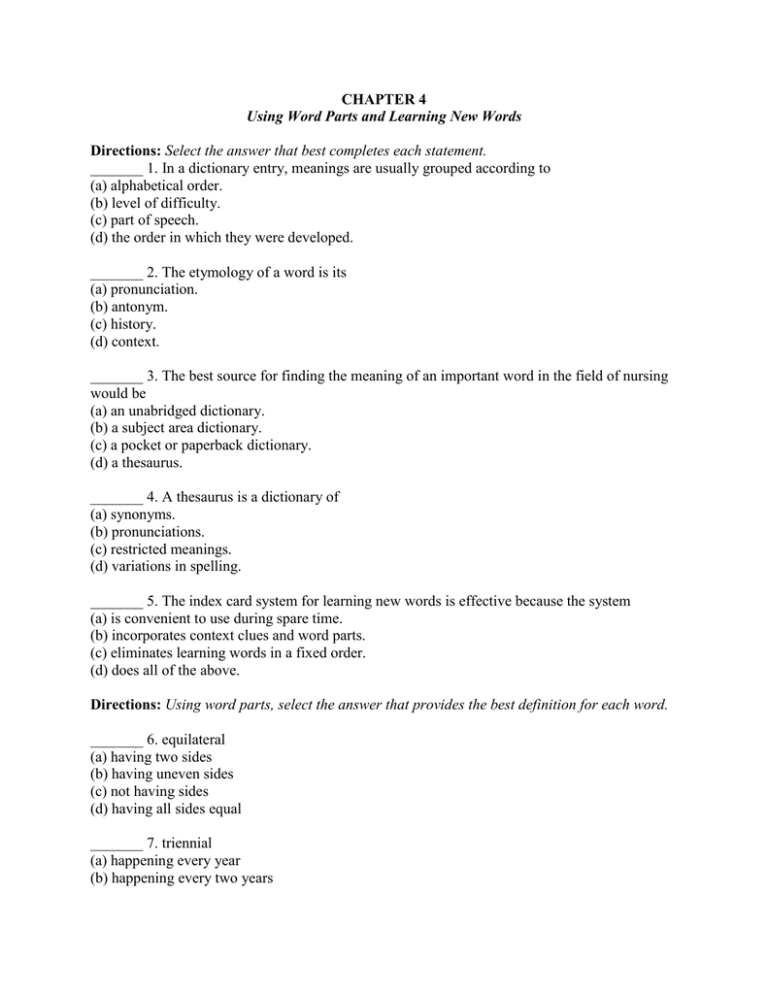
CHAPTER 4 Using Word Parts and Learning New Words Directions: Select the answer that best completes each statement. _______ 1. In a dictionary entry, meanings are usually grouped according to (a) alphabetical order. (b) level of difficulty. (c) part of speech. (d) the order in which they were developed. _______ 2. The etymology of a word is its (a) pronunciation. (b) antonym. (c) history. (d) context. _______ 3. The best source for finding the meaning of an important word in the field of nursing would be (a) an unabridged dictionary. (b) a subject area dictionary. (c) a pocket or paperback dictionary. (d) a thesaurus. _______ 4. A thesaurus is a dictionary of (a) synonyms. (b) pronunciations. (c) restricted meanings. (d) variations in spelling. _______ 5. The index card system for learning new words is effective because the system (a) is convenient to use during spare time. (b) incorporates context clues and word parts. (c) eliminates learning words in a fixed order. (d) does all of the above. Directions: Using word parts, select the answer that provides the best definition for each word. _______ 6. equilateral (a) having two sides (b) having uneven sides (c) not having sides (d) having all sides equal _______ 7. triennial (a) happening every year (b) happening every two years (c) happening every three years (d) happening every four years _______ 8. transcultural (a) different cultures (b) within cultures (c) among cultures (d) extending across cultures _______ 9. chronometer (a) machine to control velocity (b) device to control friction (c) instrument for measuring time (d) instrument for measuring speed _______ 10. photosensitive (a) sensitive to heat (b) sensitive to light (c) sensitive to color (d) sensitive to friction Directions: Select the answer that best completes each statement. _______ 11. In a dictionary, restrictive meanings refer to words that are (a) not accepted as standard English. (b) no longer in common usage. (c) used in a specific field of study. (d) borrowed from another language. _______ 12. A thesaurus is most useful for finding a word’s (a) origin. (b) definition. (c) synonyms. (d) part of speech. _______ 13. You might use a thesaurus in all of the following situations except to (a) locate a word that fits a particular situation. (b) replace a word that is unclear. (c) locate a word that is more descriptive. (d) check the specialized or technical meaning of a word. _______ 14. The part of a word that contains its basic meaning is known as the (a) context. (b) prefix. (c) suffix. (d) root. _______ 15. The word childhood has a (a) root only. (b) prefix and a root. (c) prefix, a root, and a suffix. (d) root and a suffix. Directions: Select the proper word part for the space in each sentence. _______ 16. Since Tom conquered his acro_________, he no longer is afraid to climb ladders. (a) photo (b) ology (c) phobia (d) gamy _______ 17. The ________ain was obviously too rocky for either farming or grazing. (a) tele (b) terr (c) micro (d) geo _______ 18. I decided to _________plant the bush to a different location. (a) mis (b) trans (c) terr (d) im _______ 19. _______odynamics is concerned with the relationships between heat and the mechanical energy of work. (a) therm (b) theo (c) hetero (d) pseudo _______ 20. In _______spect, I wish I had studied harder for the exam. (a) in (b) retro (c) ex (d) intro
